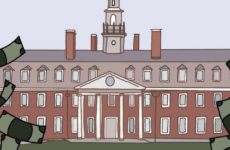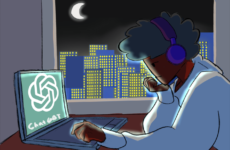I view the student council as the liaison between the student body and the administration — it enacts social reform aligning with the general interests and concerns of students. In general, the Choate council has proved effective in addressing the needs of our student body, having in recent years benefitted it in various ways. However, I was dismayed at the many problems that had arisen as the student council election season commenced — there remain many flaws that require attention in the system Choate currently employs.
The most obvious flaw Choate’s student council faces is inherent to any similar institution: the election process is exceedingly biased. Frankly, the extent to which students exhibit nepotism during election season at Choate is egregious. While some of my peers waited to hear campaign speeches, many had already decided whom to vote for beforehand. Some even tried to convince me to vote for people whom I myself do not know. “He’s my friend, so naturally, you should vote for him too.” Not only does such an approach perpetuate the social hierarchies of high school many wish to deconstruct, but this approach also nullifies the efforts of other candidates, who work just as hard to be elected. By allowing the election process to degenerate into a popularity contest, we effectually suppress the values of equal representation which groups like the student council rely heavily upon. If we choose to condone such favoritism, we might as well eradicate the system altogether.
 Nepotism isn’t the only issue in the election process. In many ways, campaign speeches are far too limited an outlet for candidates to introduce themselves to the student body. Two minutes may certainly reveal the best public speaker among the nominees, but they won’t reveal the best candidate — students need more. The community should be entitled more chances to acquaint itself with the students running, certainly more than a set of speeches and an hour-long Q&A session. The Choate community should consider alternate ways to enhance communication between candidates and the electorate — whether it be establishing a forum for students to converse with them individually, hosting a more comprehensive Q&A session, or exploring other means of campaigning.
Nepotism isn’t the only issue in the election process. In many ways, campaign speeches are far too limited an outlet for candidates to introduce themselves to the student body. Two minutes may certainly reveal the best public speaker among the nominees, but they won’t reveal the best candidate — students need more. The community should be entitled more chances to acquaint itself with the students running, certainly more than a set of speeches and an hour-long Q&A session. The Choate community should consider alternate ways to enhance communication between candidates and the electorate — whether it be establishing a forum for students to converse with them individually, hosting a more comprehensive Q&A session, or exploring other means of campaigning.
One of the student council’s obligations is to vote on which policy changes to present to the administration; yet, sometimes, the votes which council members cast may not accurately reflect what the rest of the student body actually wants. Certain debates — take, for example, the one-strike policy — are much more clearly resolved if all students are allowed a say. In such cases, a school-wide referendum vote would work far more efficiently than a decision the council makes on behalf of the students. A democratic system would not only substantiate the interests of the student body but would also generate far less pushback from opposing parties. The popular vote speaks for itself.
Because council members are elected representatives of the student body, we students must hold each member accountable for every action they take. Additionally, we must make proper use of the group. Personally, I hope that as the new council begins its term and carries us into the new year, it recognizes and addresses the aforementioned issues with the system, as well as any others that may arise.




